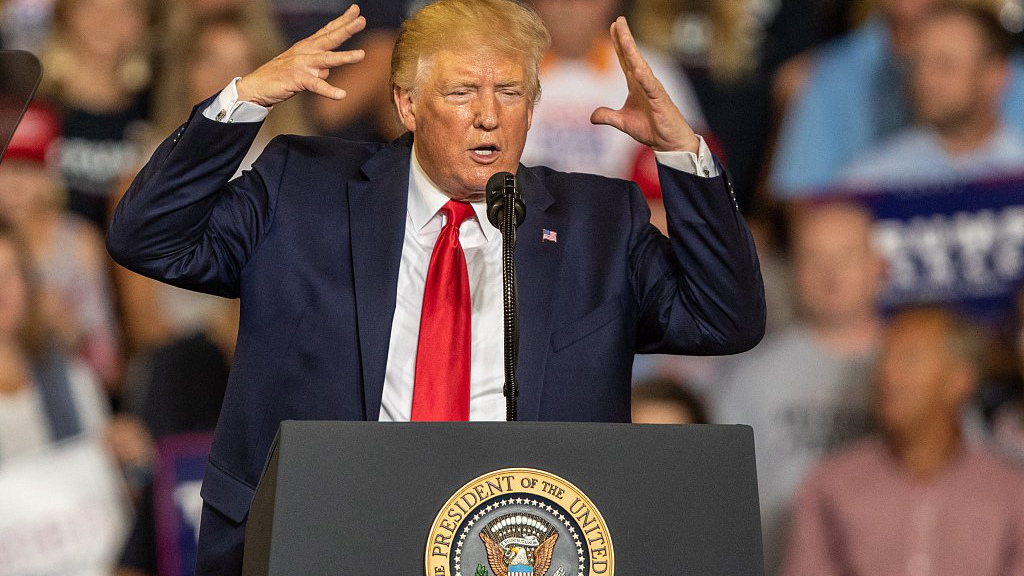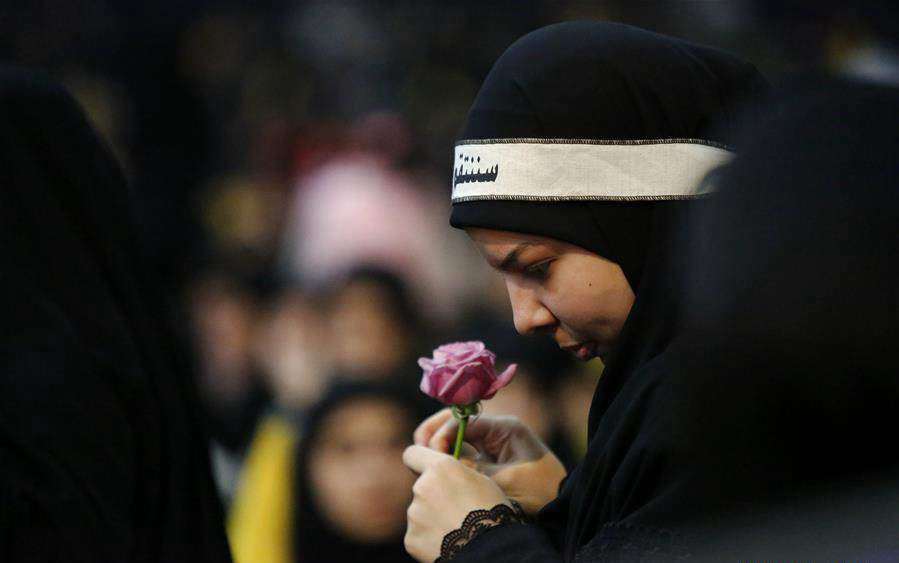
Editor's note: William Jones is Washington Bureau Chief for the Executive Intelligence Review and a non-resident fellow of Chongyang Institute for Financial Studies, Renmin University of China. The article reflects the author's opinions, and not necessarily the views of CGTN.
U.S. President Trump's unfortunate decision to follow the advice of his neoconservative advisers to assassinate Qasem Soleimani has placed the world on the slippery slope towards war and chaos – and not only in the Middle East. While Soleimani was reviled in the West for his role in terrorism, he was highly revered by the Iranian people as a fighter for Iran going all the way back to his service in the Iran-Iraq War. Those demonstrations some weeks ago protesting the economic conditions in Iran, which Secretary of State Pompeo and others were lauding as the beginning of a more pro-Western opinion, have now been replaced by millions out in the street mourning their fallen leader. And when the mourning period is over, they will soon be out chanting "death to Satan (i.e. the United States)."
Similarly in Iraq, where in the last few weeks there were demonstrations protesting the Iraqi government and the growing influence of Iran in Iraq, which Pompeo and even President Trump lauded as a sign of a more pro-Western opinion, the demonstrations have now taken on a clearly anti-Western, and particularly, an anti-U.S. direction. In that attack, Iraqi militia chief, Abu Mahdi al-Muhandis, was also killed. Both he and Soleimani were seen in Iraq as key figures in the fight against ISIL.
Iran has promised to respond to the assassination – and they definitely will. What that response will be is hard to say. Iran is not prepared to go head-to-head with the United States in an all-out war, so the response will be asymmetrical, but daunting. President Trump has promised to respond to any new terrorist attacks with attacks on 52 different targets in Iran – and that would be the beginning of an all-out war between Iran and the United States. And once this begins, there is no telling where it will stop.
It's not clear if the president fully understands how this one action can totally upend his plans for the United States and in the foreign policy arena, and could also spell the death knell for his presidency. While there is some cheering going on among some of his loyal supporters and the gaggle of neoconservative pundits, things could change as the body bags come home. And there will be body bags unless he can pull out soon from what is a no-win situation for him or for the world.

A supporter holds a rose during a rally for Qasem Soleimani in southern suburbs of Beirut, Lebanon, on January 5, 2020. /Xinhua Photo
A supporter holds a rose during a rally for Qasem Soleimani in southern suburbs of Beirut, Lebanon, on January 5, 2020. /Xinhua Photo
It's unlikely that all of this can be placed on a diplomatic track through some form of "Track Two" discussions with Iran. "Track Two" with Iran was pretty much obliterated with the U.S. withdrawal from the Joint Comprehensive Plan of Action (JCPOA) and the ratcheting up of sanctions on Iran. And the Europeans, who have also been undercut by this drastic development, are probably not interested in carrying water for such an unpredictable president.
Russia and China have also protested this unlawful and thoughtless action. Nevertheless, President Trump still wants to maintain a good relationship with the leaders of both these countries. If he called on them to discuss the highly volatile situation, he would no doubt receive help in trying to decrease tensions through dialogue.
Both Russia and China have good relations with Iran. They are also major powers, with much greater military capabilities than Iran. If they were prepared to broker a deal, Iran might well be convinced not to conduct a major retaliation that could well lead to war with the United States. With all the talk of "coalition-building," this is the only "coalition" that could lead to a peaceful resolution of this very precarious situation.
The U.S. still has allies in the Middle East, but these are rapidly dwindling. Will Saudi Arabia put their hand in the fire for the United States when they know the damage their neighbor Iran could do if they so choose? That's unlikely. And there is Israel, which always seems to be willing to serve as a "hand grenade" for U.S. neoconservative schemes, but even a firebrand like Netanyahu may be unwilling to stand in the frontlines on this particular battlefield.
The options are therefore few, short of an all-out war, but they do exist. Is President Trump smart enough to look for a diplomatic solution at this stage? We hope so. And no doubt both China and Russia are already preparing to try to take this to a new level at the UN or in other international fora in an attempt to reverse the present course of things.
But time is running out. If President Trump doesn't break with the policy that has been a long-standing agenda for his neoconservative advisers (note well John Bolton's congratulations to the President), it could spell the death knell for the Trump presidency – and a new conflagration for the world community.
(If you want to contribute and have specific expertise, please contact us at opinions@cgtn.com.)